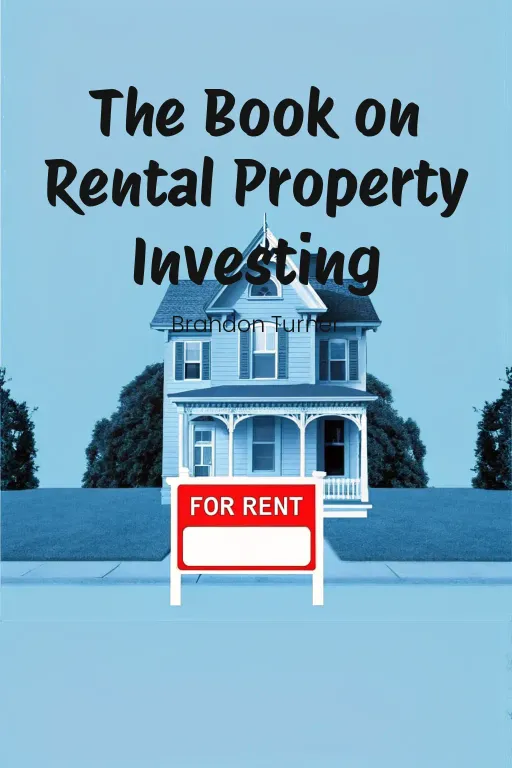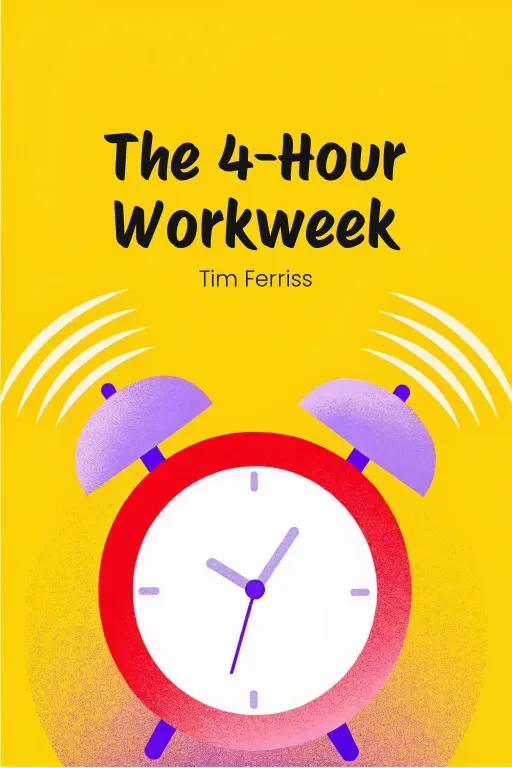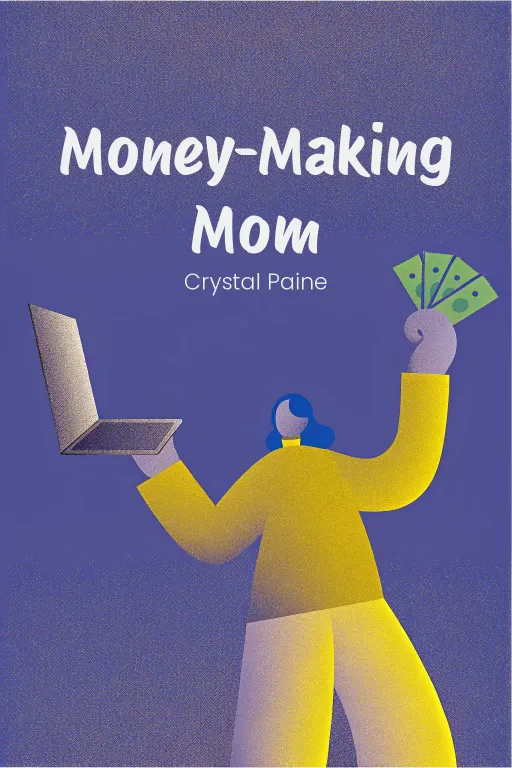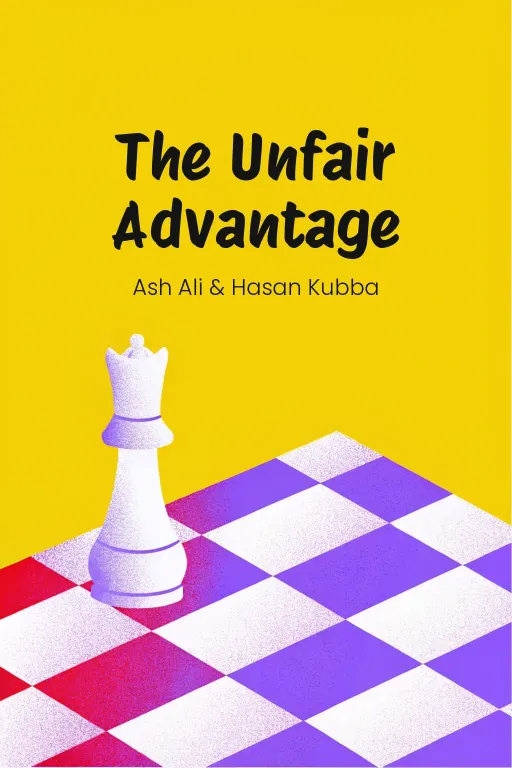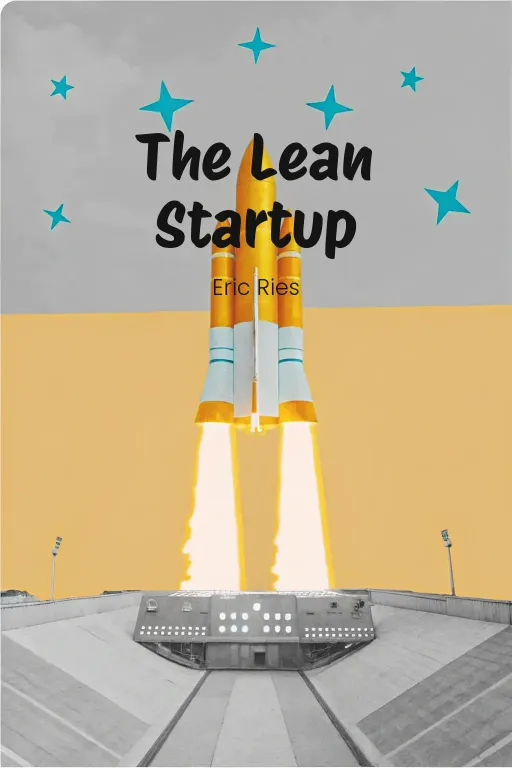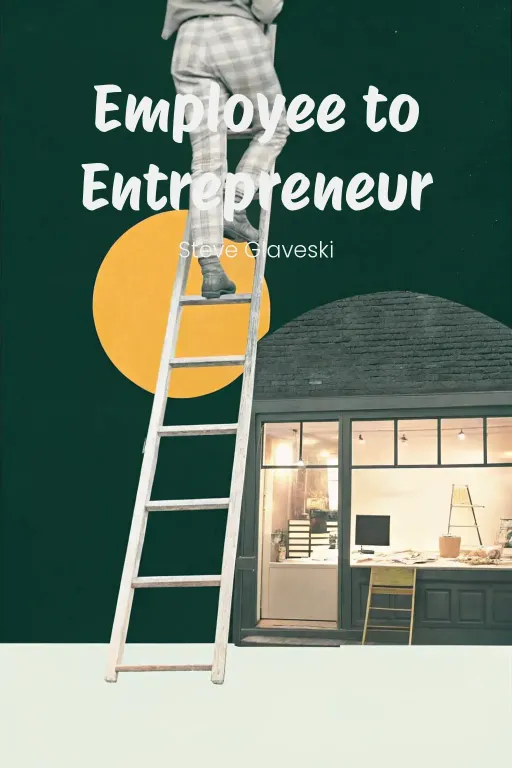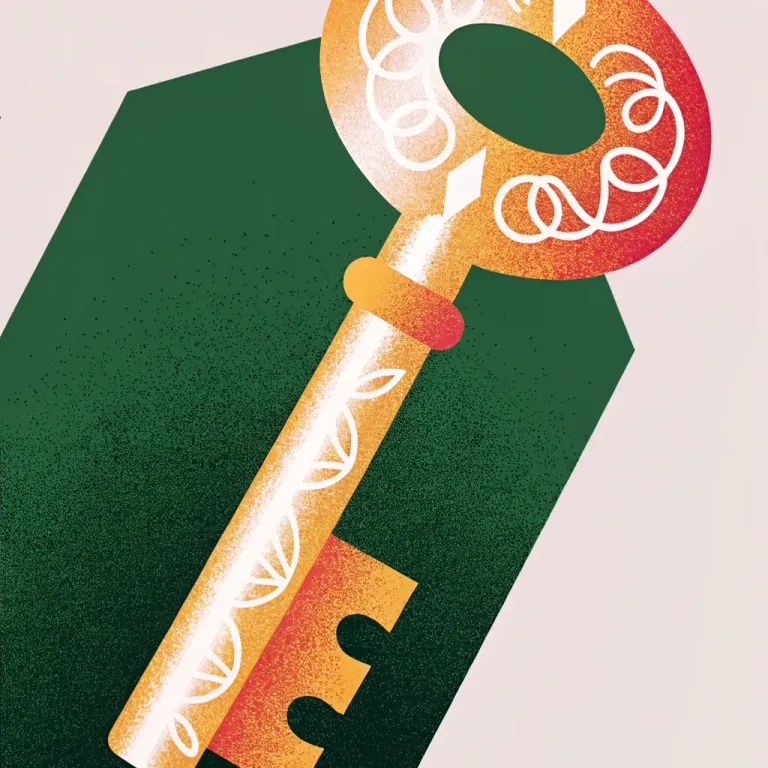
Your Hidden Edge: MILES to Success
Podcast by Let's Talk Money with Sophia and Daniel
How You Already Have What It Takes to Succeed
Your Hidden Edge: MILES to Success
Part 1
Daniel: Hey everyone, welcome back to the podcast! Today we’re tackling something super important: the real story behind entrepreneurial success and why it's not always a level playing field. Sophia: Exactly, Daniel. We’ve all heard the saying, "If you just work hard enough, you'll make it," right? But what if there's more to it than just grinding? I mean, what if some people just start with a leg up that others don't even get close to? Daniel: That's the core of what Ash Ali and Hasan Kubba talk about in their book, “The Unfair Advantage”. They argue that success isn't purely about hard work, but also about recognizing and using the inherent advantages you already have. Things like access to capital, intelligence, your connections, or even, like, where you grew up. Sophia: I know what people might be thinking: "Oh great, either I have these advantages or I’m screwed." But hold on, that’s not the point. We're here to break it all down and show you how to identify and leverage what you have. Daniel: Right! First off, we'll explain what these "unfair advantages" actually are and why it's so important to understand them – whether you're launching a startup or just figuring out your career path. Then, we’ll introduce their MILES Framework, which is a really cool tool for pinpointing your own advantages, from money to where you’re based, to your education, and even your creative abilities. Sophia: Exactly. And after that, we’re going to talk about how to actually apply this stuff. Because, you know, knowing your advantages is great, but how do you turn that knowledge into real-world results? We’ll share some practical strategies and some real-life examples to keep it all grounded and useful, I think. Daniel: So, whether you’re a seasoned entrepreneur, just starting out, or simply curious about what gives some people an edge, this episode is packed with actionable insights that can help you forge your own unique path to success. I'm really excited to get into this. Sophia: Alright, let’s dive in.
The Concept of Unfair Advantages
Part 2
Daniel: Okay, so let's dive into the heart of it: this idea of unfair advantages. It really turns the traditional success story on its head, doesn't it? I mean, we’re always told it’s all about hard work, persistence, a dash of talent. But Ash Ali and Hasan Kubba come along and say, "Hold on, success is often built on things you don’t even control." Sophia: Exactly! It’s like pulling back the curtain on this whole "self-made" myth, right? They're basically saying that meritocracy alone is kind of a fantasy because the starting line isn't the same for everyone. You know, whether it's money, your network, or just being in the right place at the right time – those unfair advantages can really make or break you. Daniel: Absolutely. And Spiegel's story is so on-point here. The guy had every advantage handed to him from day one: a wealthy family, top-tier education, and a network most people can only dream of. Snapchat was a cool idea, no doubt. But without those early advantages, would it have exploded the way it did? Sophia: Probably not, right? And look, I’m not trying to diminish the innovation—that disappearing message thing was genius. Still, having mentors like Eric Schmidt right off the bat? That's not something you can just hustle your way into. And honestly, I respect that Spiegel actually admits his privilege. He's basically saying, "Hey, life's not fair, and I got lucky." Most people in his position would just say they worked 18-hour days. Daniel: It’s so refreshing, isn’t it? And that’s Ali and Kubba’s point. It’s not about tearing down achievements but highlighting the external stuff that often underlies success. But at the same time, if you weren’t born into those conditions, the obstacles can feel insurmountable. Sophia: Exactly, and that’s what I like about what they do next. They don't just leave you feeling doomed by inequality. They shift to self-awareness. They’re like, "Okay, life isn’t fair, but what advantages do “you” have?" Even the weird, unconventional ones can help you level the playing field in your own way. Daniel: Right, and that's where the MILES Framework comes in. We’ll get into that more later, but basically, it’s an acronym—Money, Intelligence and Insight, Location and Luck, Education and Expertise, and Status. It’s not just about listing privileges; it’s about strategically thinking about what you already have, even if those advantages aren’t as obvious as, say, Spiegel's family fortune or connections. Sophia: Like Ash Ali's story itself. If we’re talking unfair advantages, his are the polar opposite of Spiegel's. But they were just as crucial. Growing up in a struggling immigrant family, he didn’t have money or fancy schools. But what he “did” have was serious hustle, resourcefulness, and people skills. I mean, subcontracting his paper route to a friend at 13? That's Business 101! Daniel: Totally! It's just a perfect example of identifying and using practical advantages in a tough spot. He didn’t have traditional privileges, but his knack for spotting opportunities helped him climb the ladder. Joining Just Eat as their first UK marketing director was key. He used his creativity and insight to help build a company that eventually went public. Sophia: Though some of his success was just plain good timing, wasn’t it? Just Eat exploded right when smartphones took off. You can’t plan for that—that’s just dumb luck. But Ali put himself in a position to capitalize on it. Daniel: That’s a great point. Ali and Kubba call that "creating your own luck"—being adaptable and alert, so you’re ready to act when chances pop up. It's not about just surrendering to randomness; it's about increasing your odds, which feels like a healthy way to think about something you can't control like timing. Sophia: Sure, but let’s not forget the elephant in the room here. Timing, connections, luck – they show up a lot in success stories, but there's still a massive gap for people who don't even have access to basic opportunities. That’s the part of this that can be hard to swallow, don’t you think? Daniel: Absolutely. And that's part of what makes this concept so insightful. By highlighting both the systemic inequalities and the underappreciated advantages, Ali and Kubba offer a nuanced view that really changes how we define success. It’s not just about grit or privilege—it’s about understanding how they interact.
The MILES Framework
Part 3
Daniel: And understanding these unfair advantages naturally leads to identifying and using them in a structured way, which is where the MILES Framework comes in. Sophia: Right. It’s like, okay, you recognize these inherent advantages, but how do you actually “use” them? That’s where the MILES Framework steps in. Daniel: Exactly. The thing that’s great about this framework is that it takes this potentially vague idea—figuring out your advantages—and makes it tangible and doable. It gives entrepreneurs an actual roadmap for figuring themselves out and making strategic plans. It bridges the gap between just thinking about it and actually doing it. Sophia: Okay, let’s break it down, then. MILES stands for Mindset, Money, Intelligence and Insight, Location and Luck, and Education and Expertise. That's a lot, so let’s start with mindset. Why is that considered the foundation? Daniel: Well, mindset is where everything starts because it shapes how we see challenges, opportunities, and our own strengths, even. Ali and Kubba really highlight having a growth mindset – believing that your abilities aren’t set in stone but can grow with effort. It’s the difference between saying, "I’m just no good at this," versus "I can’t do this “yet”." Sophia: Right, the “yet” is huge. It turns failure into a lesson instead of a dead end. But, playing devil's advocate here, isn't all this "mindset" talk a little... overdone? Like, yeah, thinking positively might help, but does it really matter when there are bigger obstacles in the way? Daniel: That's a fair question, Sophia. But I see it less as just blindly being positive and more about being resilient and knowing yourself well. Think about Ash Ali during the dot-com crash. Losing his job in a huge recession could have broken him, right? But he used it to rethink his strengths and how he approached starting businesses. That’s a growth mindset at work. Sophia: Okay, fair enough. He didn't just think, "It'll all work out!" He adjusted, learned, and turned a potential disaster into something useful. But what about this Reality-Growth Mindset they talk about? How is that different? Daniel: That’s where they add another nuanced layer. While the growth mindset is about unlimited potential, the Reality-Growth Mindset is about balancing your ambitions with your limits. It’s about setting goals that are achievable and aligned with your own situation, while still pushing yourself. Ali and Kubba make it clear - knowing your limits isn’t giving up; it’s being smart. Sophia: That makes sense. It's like saying, "Dream big, but don't try to sprint when you're training for a marathon." Let's move on to money. This one's pretty obvious, right? Money gives you an unfair advantage. Daniel: True, but they go deeper than just saying, "Money helps." It’s about how money acts as leverage, letting you experiment faster, hire good people, and grow efficiently. Euan Blair’s journey with Multiverse is a good example. Even when he had financial losses, he could still raise £600,000 because of his connections. That gave him the stability to focus on the long term. Sophia: Yeah, but there's another side to that, right? If you're starting from scratch, you're forced to be super creative. It’s like getting a blank canvas versus a limited set of paints – you have to innovate within those limits. Sometimes not having a ton of money can actually be an advantage. Daniel: Absolutely. Ali and Kubba actually point out that having limited resources can spark creativity. The lean startup model, for example, is all about doing more with less, forcing you to focus on what’s truly important. But let’s be real - there are limits. Not having money can also mean missing opportunities, no matter how resourceful you are. Sophia: True. So it’s a balancing act. Moving on to intelligence and insight though, this one feels a little broad. How do they define it? Daniel: They intentionally go beyond just IQ or academic intelligence. This includes things like emotional intelligence, practical smarts, and really understanding the market. The Collison brothers of Stripe are a great example. Yes, they were super smart, but what made them stand out was how they combined their technical skills with a deep understanding of the market. They realized that online payments needed to be smoother before almost anyone else did. Sophia: Right, it wasn’t “just” that their product was better. It was their timing, and the fact that they solved a problem most businesses didn’t even know they had yet. But what about emotional intelligence? How does that factor into success? Daniel: It starts with building relationships. Look at Ash Ali - his ability to connect with investors and mentors on a personal level was key. He built trust in situations where his qualifications or financial situation wouldn’t have helped him. Entrepreneurs often underestimate how important emotional intelligence can be. Sophia: Okay, so emotional intelligence is like the social part of starting a business. Then we have location and luck. This one fascinates me, because location feels like it’s just chance. You don’t pick where you’re born. But they argue there’s a strategy to it, right? Daniel: Exactly. Location isn’t just about geography; it’s about being in the right ecosystem. Silicon Valley is a good example – its interconnected environment creates opportunities. But Huda Kattan’s story shows also shows it how strategically relocate. By moving to Dubai, she put herself in a market that matched her brand’s vision. Sophia: And yeah, Shu from Deliveroo is the classic “luck meets opportunity” story. He saw a gap in the market while working as a banker in London – a city that was ready for that kind of service – and turned it into a successful business. Luck, location, but also awareness. Daniel: Right, and the key here is to pay attention to the opportunities around you and then act quickly. Like they say, you can’t control luck, but you can create the conditions for it to happen. Sophia: Let’s wrap it up with education and expertise. This one seems pretty straightforward - get knowledgeable and master your craft - but they frame it in a thoughtful way, right? Daniel: They do. They focus on continuous learning and real-world experience, not just formal education. Jeff Bezos is a great example. His academic background gave him a solid foundation, but it was his Wall Street experience and ability to apply that knowledge that made Amazon what it is today. Sophia: And for those who don’t take the traditional route, it comes back to resourcefulness. Ali didn’t have fancy degrees, but he gained practical experience by doing things like subcontracting his paper route and starting small businesses. Daniel: Exactly. The point is that expertise can come in unconventional ways – and it usually does in entrepreneurship. Sophia: So, there you have it: MILES, a structured way to understand and use whatever advantages you have. It’s not about leveling the playing field; it’s about playing to your strengths.
Practical Applications in Entrepreneurship
Part 4
Daniel: Okay, so we've got this clear framework. Now, how do we actually “use” it? Sophia: Exactly! Let's dive into how these principles play out in the real world, from that initial spark of an idea all the way to building something that lasts. Daniel: Right, this is where things become actionable, you know? It all boils down to “Practical Applications in Entrepreneurship.” We're tying everything we've discussed together, showing how the MILES Framework translates into tangible steps for startup success—from the initial idea to scaling the business. Sophia: I like that it's not just theory. It’s rooted in real-world stories and strategies that entrepreneurs have actually used. So, let’s get practical—where do we even begin? Daniel: It starts with your "why." That core purpose. Your intrinsic motivation. It's “the” foundational question every entrepreneur needs to answer upfront. Understanding why you're doing something keeps you anchored, especially when things get tough. Sophia: Yeah, but the whole "find your why" thing feels a bit… overdone, doesn't it? How’s this different from your average self-help guru? Daniel: Good point, Sophia. This isn’t about fluffy inspirational quotes, you know? It’s about really connecting with what drives you. Take Ash Ali, for example. He grew up in Birmingham, watching his parents work really hard in factories. So, for him, entrepreneurship wasn’t about building some tech empire. At first, it was about financial freedom—escaping that grind he saw growing up. But over time, it evolved. He began focusing on creating opportunities for others. Sophia: So, it’s not just about “feeling” good, right? It’s a way to stay strong when things get tough. I mean, starting a business is “hard”. If you don't care enough, you're gonna burn out fast, won't you? Daniel: Exactly! And a clear "why" gives you a story to tell. It resonates with investors, customers, your team... If everyone understands the mission, it’s easier to get them on board. It’s as much about external communication as it is about internal grit. Sophia: Okay, so we know “why” we're doing it. Now what? Daniel: Next up is validating your idea. This is where you test your vision against reality. It’s not enough to “think” you have a good idea – you need to see if there's actual demand and if people are willing to pay for it. Sophia: Right. So, I’ve got this brilliant idea… Where do I even start? Surveys? Just chatting with people? Do I need to spend a ton of money on some fancy market research? Daniel: It doesn’t have to be complicated. The key is watching how customers “actually” behave. Don't just make assumptions. Look at WhatsApp. It began as a status-sharing app, pretty specific, right? But users weren't that into it. What “did” grab their attention was the messaging function, which the founders didn't expect to take off. They pivoted, made messaging their core product, and boom! Sophia: So, basically, their users told them what they wanted without actually “telling” them. Instead of stubbornly sticking to their plan, they just listened. Smart. But what if you’re trying to figure this out “before” you even launch? Daniel: That's where simple prototypes or MVPs—Minimum Viable Products—come in. It’s about creating the most basic version of your idea to see if it works. You don’t need the entire product upfront. Just focus on the main feature that solves a core problem. Like Instagram. Sophia: Ah yes, the famous Instagram pivot. From "Burbn" to the photo-sharing app we all know today. The thing is, they focused on what was simple. People didn’t care about the fancy check-ins or anything else; they just wanted to share cool photos easily. By stripping everything else away, they found gold. Daniel: Exactly! And that’s the beauty of an MVP. It's not about being perfect; it's about getting it “out there” and learning what works before investing too much time and money. Sophia: Got it. You’ve validated the idea, you've got an MVP—now what? Daniel: Collaboration. Team-building. Mentorship. Startups aren’t a solo endeavor. You need people around you – co-founders, team members, advisors – who bring different strengths to the table. Sophia: Like Jan Koum and Brian Acton, the guys behind WhatsApp. Koum had the tech skills, Acton understood monetization and had investor connections. It’s hard to imagine they could have done that alone. Daniel: Exactly. And mentorship is key, learning from people with the experience you don't have yet. Louise Broni-Mensah launched Shoobs by making connections on the UK's nightlife scene. The value of those connections can’t be overstated. Sophia: Which brings us to everyone’s favorite topic: money. Once you’ve got the team and mentors, how does fundraising fit in? Daniel: Fundraising is about aligning your goals with investors’ values. It's not enough to just have a great idea. You need metrics, a compelling story, and proof that it's gaining traction. Euan Blair’s story is a great example. Even facing heavy financial losses early on with WhiteHat, now Multiverse, he persisted. Thanks to his network, he raised capital that allowed for experimentation and refining the business model. Sophia: But it wasn’t just about who he knew, right? Investors need to see potential. They need to know you’re solving a real problem and that your business can grow. It's about the story “and” the numbers. Daniel: Absolutely. You’ve got to balance the emotional appeal with cold, hard facts. Capture their imagination with a vision and back it up with data. It’s both an art and a science. Sophia: Alright, so to sum it up, these practical applications – finding your “why,” validating your idea, building an MVP, creating a network, and fundraising – that's the whole entrepreneurial journey in a nutshell! If you tackle those steps with the MILES framework in mind, you're not just building a business, you're setting yourself up for success. Agree? Daniel: Agreed.
Conclusion
Part 5
Daniel: Wow, Sophia, what a ride today! We really dug into the idea of unfair advantages, took apart the whole meritocracy thing, and then introduced the MILES Framework as a way to figure out what your unique strengths are. Sophia: Yeah, and we didn't just stay in theory-land, did we? We jumped into how to actually use all this stuff. From figuring out your "why" and testing ideas with MVPs, to building your network and even dealing with the tricky part of fundraising, we hit pretty much the whole startup toolkit. Daniel: Exactly! But the real point is this: success isn't about having every advantage or copying someone else's plan, right? It's about knowing what you already have – whether it's money, connections, or just being really creative – and using it on purpose. Knowing yourself is the most important part of it all. Sophia: Right, right. And this isn't just for people starting businesses, either. Whether you're trying to get promoted or just working on something you love, the idea of unfair advantages and the MILES Framework can still help. It's about being smarter with what you've got, isn't it? Daniel: Totally! So, here’s what we want you to do: Think about your own unfair advantages for a minute. What do you have, big or small, that makes you different? And more importantly, how can you start using those things today to make opportunities for yourself in your job or your business? Sophia: Because like we've been saying, success isn't fair. But it can be strategic. And the sooner you figure out what your edge is, the sooner you can make it even sharper. Daniel: Thanks so much for being with us today! We'll catch you next time! Sophia: Take it easy, and don't forget to play to your strengths!

